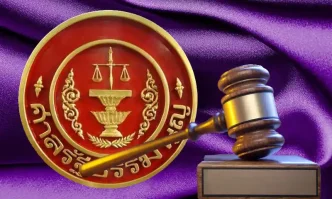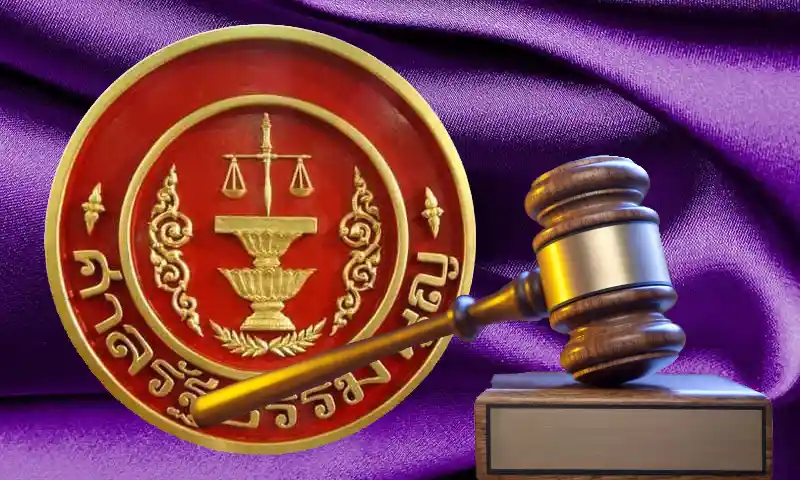Thailand’s Election Commission (EC) has formally pressed charges against 53 senators for alleged collusion in the recent senatorial elections, marking a significant escalation in the country’s ongoing political tensions. The accusations, centered on coordinated voting practices that may undermine the integrity of the upper house selection process, have reignited debates over transparency and accountability in Thai politics. With the potential to reshape public trust in democratic institutions, this development raises critical questions about the future of political reform in the kingdom.
Allegations of Collusion Surface
The charges, confirmed by the EC earlier this week, stem from irregularities observed during the senatorial elections held in June. The commission alleges that the 53 senators engaged in coordinated voting behavior, potentially violating electoral laws designed to ensure independent decision-making. While specific details of the evidence remain undisclosed pending legal proceedings, the EC has stated that the actions under scrutiny could constitute a breach of the organic law governing senatorial elections.
Under Thailand’s current constitution, enacted in 2017 following years of military rule, the Senate plays a pivotal role in shaping legislation and endorsing key political appointments. Unlike the elected House of Representatives, senators are selected through a complex, multi-tiered voting system involving candidates from various professional and social groups. This system, critics argue, is inherently prone to manipulation, as it limits direct public participation and allows for behind-the-scenes coordination.
A spokesperson for the EC emphasized the gravity of the situation, stating, “We are committed to upholding the principles of fairness and transparency in all electoral processes” said the official. The commission has forwarded the case to the Supreme Court for further adjudication, a move that could result in penalties ranging from fines to the disqualification of the accused senators if the allegations are substantiated.
Political Context and Public Reaction
The timing of these charges is particularly significant, as Thailand continues to grapple with the legacy of military influence in politics and a polarized political landscape. Since the 2014 coup, which ousted an elected government, the Senate has often been viewed as a mechanism to maintain establishment control, with many of its members perceived as loyal to the military-backed regime that drafted the current charter. The allegations of voting collusion have thus fueled accusations of systemic flaws in the selection process.
Public sentiment, as gauged through social media platforms and street interviews in Bangkok, reflects a mix of skepticism and frustration. Many citizens express doubt that the charges will lead to meaningful change, citing a history of unresolved political scandals. “It’s the same story every few years” said a 34-year-old street vendor in the capital. “They accuse, they investigate, but nothing really changes for people like us.” Others, however, see the EC’s actions as a potential step toward accountability, albeit a small one.
Political analysts note that the outcome of this case could have far-reaching implications for Thailand’s democratic trajectory. If the Supreme Court rules against the senators, it may embolden calls for broader electoral reforms, particularly concerning the Senate’s composition and powers. Conversely, a dismissal of the charges could further erode public confidence in the judiciary and electoral bodies, reinforcing perceptions of impunity among the political elite.
Historical Precedents and Legal Challenges
This is not the first time Thailand’s Election Commission has pursued charges against political figures for electoral misconduct. In 2020, the EC successfully petitioned for the dissolution of the opposition Future Forward Party over alleged campaign finance violations, a decision that sparked widespread protests and accusations of political bias. The current case, however, differs in scope, targeting individual senators rather than an entire political entity, and focusing on the opaque mechanisms of upper house elections.
Legal experts caution that proving collusion in a court of law will be a complex endeavor. Thai electoral law requires clear evidence of intent and coordination, which can be difficult to establish without direct testimony or documented agreements. Moreover, the accused senators are likely to mount a robust defense, potentially arguing that any similarities in voting patterns were coincidental or reflective of shared professional interests rather than deliberate collusion.
“The burden of proof lies with the EC” said Dr. Narong Chaiyapong, a constitutional law scholar based in Bangkok. “If the evidence is circumstantial, the court may be reluctant to impose harsh penalties, especially given the political sensitivities surrounding the Senate.”
Broader Implications for Thai Politics
Beyond the immediate legal ramifications, the charges against the 53 senators highlight deeper structural issues within Thailand’s political system. The Senate’s role as a counterbalance to the elected lower house has long been a point of contention, with critics arguing that its unelected nature undermines democratic principles. Since its inception under the 2017 constitution, the upper house has consistently voted in alignment with military and royalist interests, blocking progressive legislation and endorsing controversial appointments.
The current scandal, if substantiated, could intensify demands for constitutional amendments to reform or abolish the Senate altogether. Opposition parties, including the Move Forward Party, which has gained significant traction among younger voters, have already seized on the allegations to renew their calls for systemic change. “This is yet another example of how the current system fails the Thai people” said a party spokesperson. “We need a Senate that represents the public, not entrenched interests.”
However, any push for reform faces significant hurdles. Amending the constitution requires a supermajority in both houses of parliament, a threshold that is nearly impossible to achieve without Senate approval. Additionally, the military and royalist factions that dominate Thai politics have historically resisted changes that could diminish their influence, often citing the need for stability in a country with a history of coups and unrest.
Regional and International Perspectives
The unfolding situation in Thailand is also drawing attention from regional neighbors and international observers, who see it as a litmus test for democratic resilience in Southeast Asia. Countries like Malaysia and Indonesia, which have faced their own struggles with electoral integrity, are watching closely to see whether Thailand’s institutions can address allegations of misconduct without succumbing to political interference. Meanwhile, international human rights organizations have urged the Thai government to ensure a fair and transparent judicial process, warning that any perception of bias could further damage the country’s global standing.
Thailand’s strategic importance as a regional hub for trade and diplomacy adds another layer of complexity. Foreign investors and diplomatic partners, particularly from the United States and European Union, have expressed concerns in the past over political instability in the kingdom. While the current case is unlikely to trigger immediate economic repercussions, prolonged uncertainty or a failure to address the allegations credibly could impact confidence in Thailand’s governance structures.
Looking Ahead
As the Supreme Court prepares to hear the case, all eyes are on Thailand’s judiciary and electoral bodies to see whether they can deliver a verdict that restores public faith in the system. The charges against the 53 senators represent more than a legal battle; they encapsulate the broader struggle for transparency, accountability, and genuine representation in a country still navigating its path toward full democracy. For now, the Thai public waits, hopeful yet wary, for answers to emerge from the courtroom.
Whether this moment will mark a turning point or simply another chapter in Thailand’s turbulent political history remains to be seen. As the legal process unfolds, one question looms large: can Thailand’s institutions rise to the challenge of reforming a system many believe is fundamentally flawed?
















